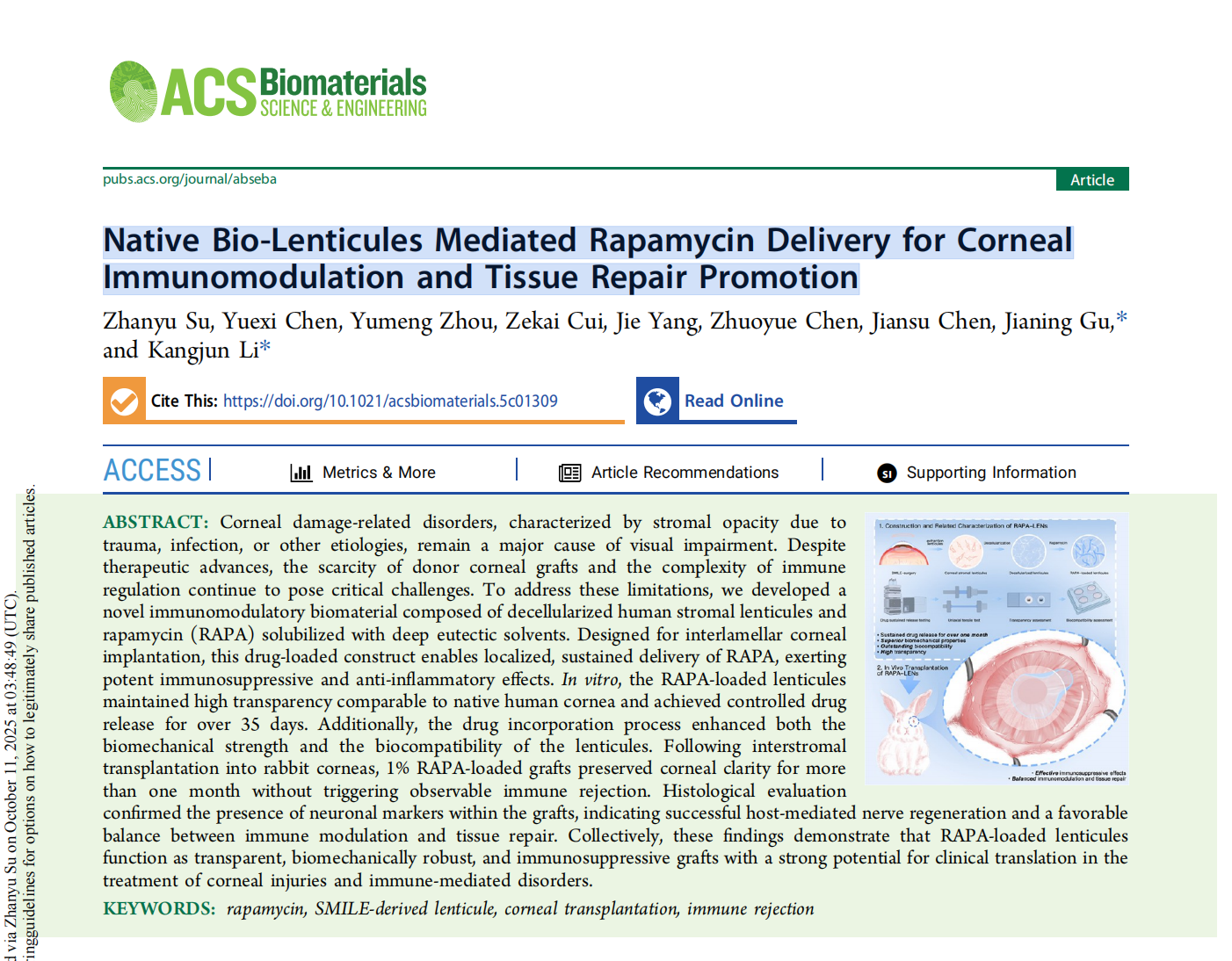- 首页
- 关于我们
概况介绍 研究方向 人才培养 委员会/committee
- 员工团队
特聘专家 主要领导 行政团队 技术团队 PI团队- 科研平台
中心实验室 实验动物中心 生物样本库- 最新资讯
- 首页
- 关于我们
概况介绍 研究方向 人才培养 委员会/committee
- 员工团队
特聘专家 主要领导 行政团队 技术团队 PI团队- 科研平台
中心实验室 实验动物中心 生物样本库- 最新资讯
Native Bio-Lenticules Mediated Rapamycin Delivery for Corneal Immunomodulation and Tissue Repair Promotion发布日期: 2025-10-11
ABSTRACT: Corneal damage-related disorders, characterized by stromal opacity due to trauma, infection, or other etiologies, remain a major cause of visual impairment. Despite therapeutic advances, the scarcity of donor corneal grafts and the complexity of immune regulation continue to pose critical challenges. To address these limitations, we developed a novel immunomodulatory biomaterial composed of decellularized human stromal lenticules and rapamycin (RAPA) solubilized with deep eutectic solvents. Designed for interlamellar corneal implantation, this drug-loaded construct enables localized, sustained delivery of RAPA, exerting potent immunosuppressive and anti-inflammatory effects. In vitro, the RAPA-loaded lenticules maintained high transparency comparable to native human cornea and achieved controlled drug release for over 35 days. Additionally, the drug incorporation process enhanced both the biomechanical strength and the biocompatibility of the lenticules. Following interstromal transplantation into rabbit corneas, 1% RAPA-loaded grafts preserved corneal clarity for more than one month without triggering observable immune rejection. Histological evaluation confirmed the presence of neuronal markers within the grafts, indicating successful host-mediated nerve regeneration and a favorable balance between immune modulation and tissue repair. Collectively, these findings demonstrate that RAPA-loaded lenticules function as transparent, biomechanically robust, and immunosuppressive grafts with a strong potential for clinical translation in the treatment of corneal injuries and immune-mediated disorders.
KEYWORDS: rapamycin, SMILE-derived lenticule, corneal transplantation, immune rejection
相关文章 - 员工团队
- 员工团队

